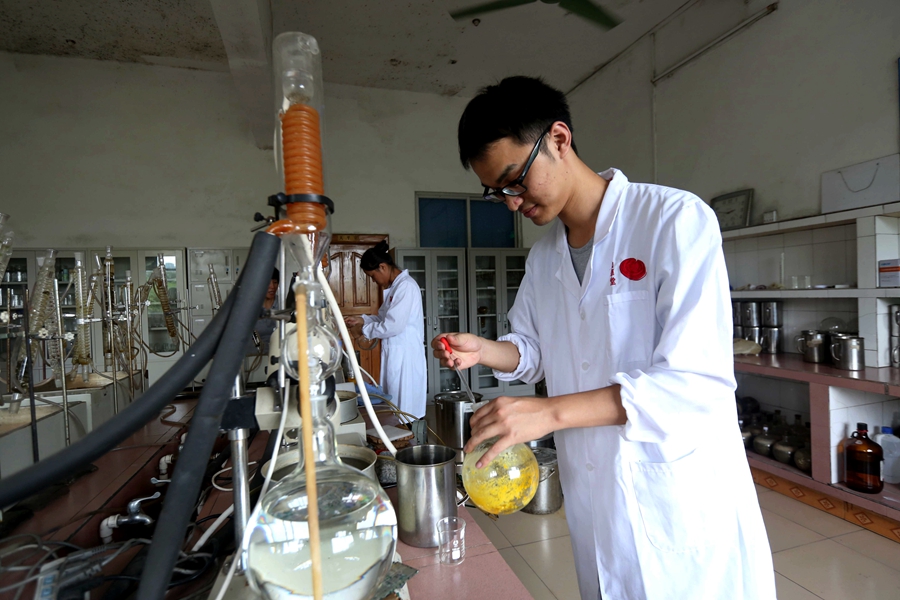Chinese expertise helps fight malaria in Comoros


Pilot program
The mass administration of artemisinin began in 2007 with a pilot program on the island of Moheli, the smallest of Comoros' three major islands, which had a population of 38,000 in 2006. It also had the highest rate of malaria. According to Bacar, more than 90 percent of the population had malaria.
"People from the other islands were afraid to go there," he said. By March 2008, Malaria cases had been reduced by 99 percent on the island, according to the Comoros Ministry of Health.
According to Deng, social mobilization at the grassroots level and training local workers was the key to the improvements.
"We did a lot of field work and operational work, which involved meeting with religious elders and teachers. We had to explain to them and convince them," he said.
The program was funded by the Chinese government, with medicine and medical care provided free to Comoran nationals.
The successful results in Moheli convinced the Comoran government to use the Chinese approach throughout the country.
By 2014, cases of malaria throughout the island nation had been reduced by 96 percent from the 2013 level and by 98 percent from the 2010 level, according to the Comoros Ministry of Health.
Song Jianping, a professor and director of the Institute of Tropical Medicine at Guangzhou University of Chinese Medicine, estimates that applying the strategy used in Comoros worldwide could be done for about $30 per person. Since there are about 1 billion people in malaria-infested areas, a preliminary estimate is that the disease could be eradicated from the world for a total cost of about $30 billion.
Ethical issues
There are some issues with mass drug administration. Ethical problems arise because healthy people are asked to take Artequick, which could cause side effects. Zheng Xie, from the Peking University Health Sciences Center, said she interviewed some people who said they had vomited after taking the drug, and one young man reported hearing loss, though Zheng said there is no evidence that Artequick caused these problems.
There is also concern that mass use could lead to artemisinin-resistant malaria, which has reportedly occurred in Southeast Asia. Another possible issue is that the Comoran population might lose its partial immunity and be vulnerable to malaria brought in from other countries.
Li said that a 98 percent reduction is not elimination, so mass drug administration should be combined with a test that detects malaria in real time.
Song said: "The method we are using now is based on more than 60 years of experience in China in the successful fight against malaria. We know that the differences between a developed and a developing country are very big. If the idea and the strategy are based on Western experts, it will be different from the reality of a developing country.
The success of mass drug administration using artemisinin in Comoros has convinced other countries, including Togo, Malawi and Papua New Guinea, that they should try the same approach. In 2015, Togo, in West Africa, contacted Guangzhou University of Chinese Medicine and asked it to start a project there.
Song said that Ikililou Dhoinine, Comoran president at the time, told him: "We have been using Western methods for more than 30 years now, and malaria is still in the country. So, I thought, why not try the Chinese method?"
For the Chinese team, the relationship with the people of Comoros is not a one-way street.
"When I think about Comoros, lots of good memories come into my mind. I gained friendship, sincerity and goodness from the people, and I experienced and know more about the enjoyment of life and significance of my work," Deng said.
Contact the writer at [email protected]
- China expands elderly care initiatives amid population ageing
- Beijing Court to handle more international commercial cases
- Explore the ancient hot springs in Guizhou
- Green peafowls: a symbol of China's cultural heritage and artistic inspiration
- China unveils global ocean prediction AI model
- Guangzhou to open 10 new metro, intercity rail lines in 2025




































